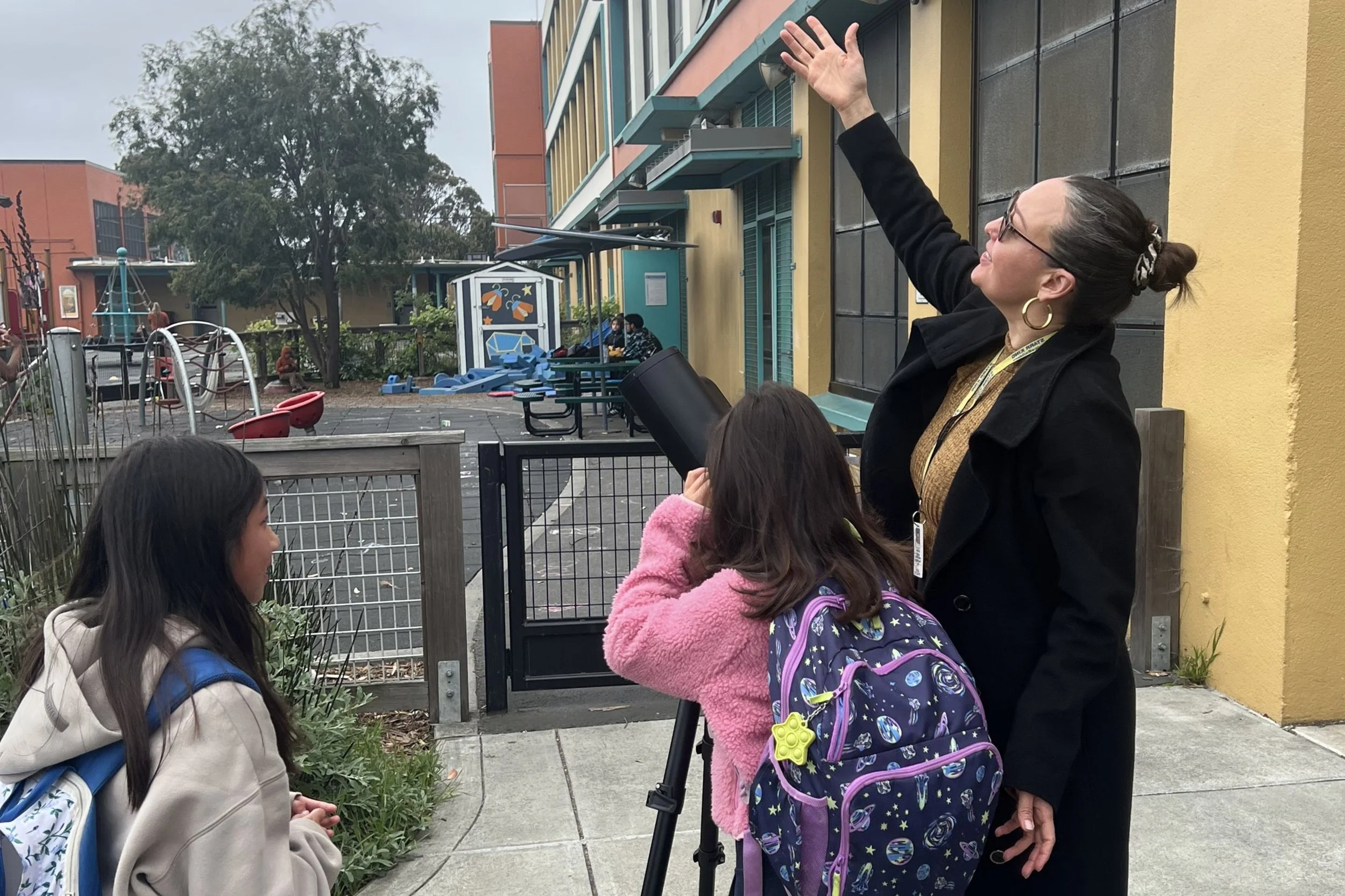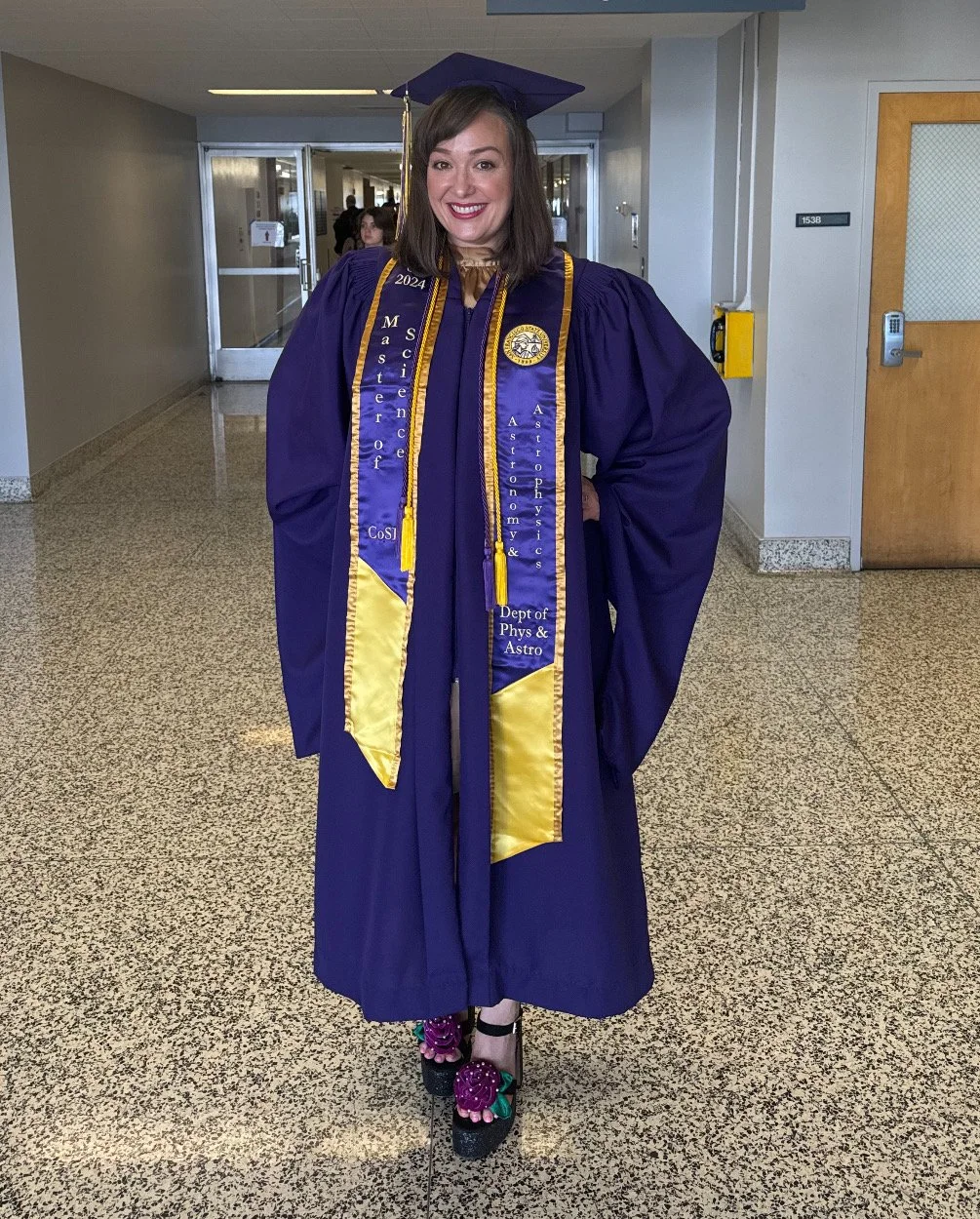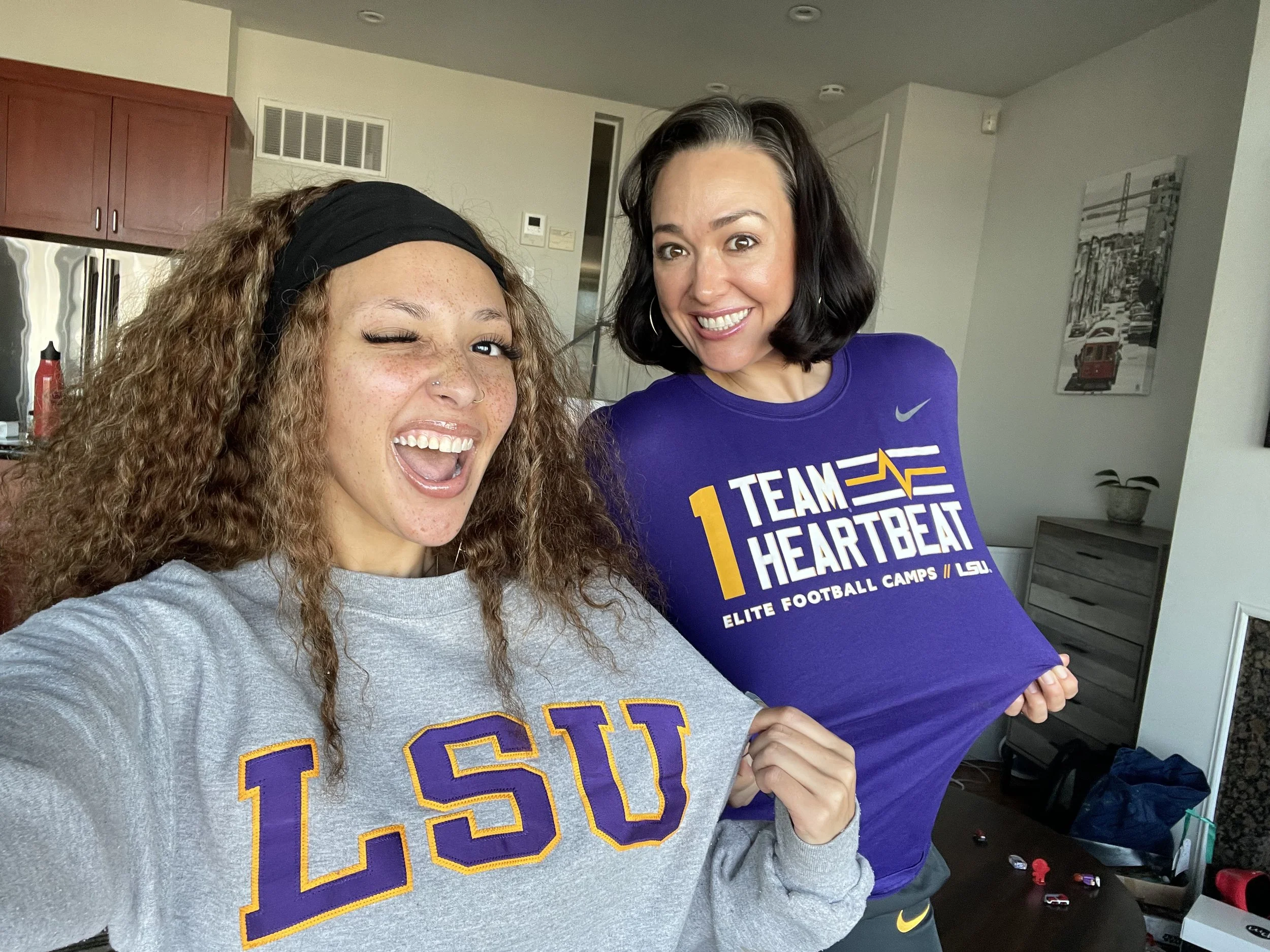Change Agent Spotlight: A Community Schools Coordinator on Boundaries, Hope, and Leaning on Each Other
At Starr King Elementary in San Francisco, Community Schools Coordinator Jessica Agnos brings an unconventional background to her role and sees it as a strength. With a career path that has spanned television production, reading intervention centers, astrophysics, and global climate advocacy, Jessica has always gravitated toward connection and systems thinking. Those skills now shape how she supports students, families, and educators in her school community.
Community Schools Coordinator Jessica Agnos and students excitedly looking through a telescope.
Her work as an advocate helped her understand that in order to address the big issues facing society, we need to begin with a more basic responsibility: educating children. Today, that belief fuels her approach to community schools, where she uses data, communication, and a wide-angle view to move fluidly between the big picture and the day-to-day needs of students.
Jessica is also quick to name how challenging and isolating the role can feel. “We have to just be ready for everything… every issue of society, right?” she explains. Community Schools Coordinators are asked to navigate countless complexities without always having the support or partnership they need. That is why creating a professional community is so critical.
Over the summer, Jessica joined a seven-week workshop with fellow community schools coordinators in San Francisco. The experience was transformative. “We were bonding, crying, learning how to navigate all of this together, and really creating community so that we did not feel isolated,” she recalls. “We’ve become family.”
A Vision Grounded in Hope
Jessica describes her perspective as both pragmatic and hopeful. She draws inspiration from Carl Sagan’s reflection on the Pale Blue Dot, Earth, as “this tiny mote of dust suspended in a sunbeam.” For her, it is a reminder to zoom out and remember what matters most.
“In order to make real change, we can’t just focus on doom and gloom,” Jessica says. “We have to be less Mad Max and more Star Trek. Imagine the world we want and get there, rather than spending all of our energy on what we don’t like.”
That outlook translates into her day-to-day advocacy as a coordinator. She encourages teams to define their site’s most urgent needs, come together around those priorities, and advocate for resources collectively. “There’s power in numbers, and your voice absolutely matters,” she affirms. “If we believe change can happen and act on it, it will.”
Her advice for others in similar roles is simple: do not try to carry it all alone. Bring your team together, share the weight, and recognize that by naming needs out loud, you are not only problem-solving but also building the kind of future you want to see.
The Challenge of Boundaries
Even with her hopeful outlook, Jessica is candid about the difficulty of setting limits in a role that is so personal and consuming. “I stay up at night. I’m in the shower, washing my hair, thinking about all of this… because it means so much, because this work is so important.”
Her question to peers is one many educators will recognize: When can you just let it go? And not be so consumed?
Jessica’s own life experiences have shaped how she approaches that challenge. Having lived through Hurricane Katrina, 9/11, and COVID, she has learned to choose joy without denying hardship. “Don’t mistake my joy for naivete,” she says. “I’m choosing to be hopeful.”
Her ask to fellow coordinators and educators is both practical and profound: How do you do it? How do you set boundaries when this work is so personal? What helps you choose joy without turning away from the real challenges?
Leaning on Each Other
Jessica’s story is a reminder of why community matters so deeply for those in education. The role of a Community Schools Coordinator may be isolating, but it does not have to be lonely. By leaning on each other, sharing wisdom, and choosing hope together, educators can sustain the work and themselves at the same time.
At Partners in School Innovation, we believe that the strength of equity-focused educators lies not only in their individual resilience but in their collective vision. Jessica’s story embodies that truth: boundaries can be hard to set, but when educators come together, they can carry both the challenges and the hope.
We invite you to join the Partners in School Innovation Community, where 650+ leaders in equity-centered education share strategies, resources, and reflections every week. Together, we can continue building the future our students deserve.



